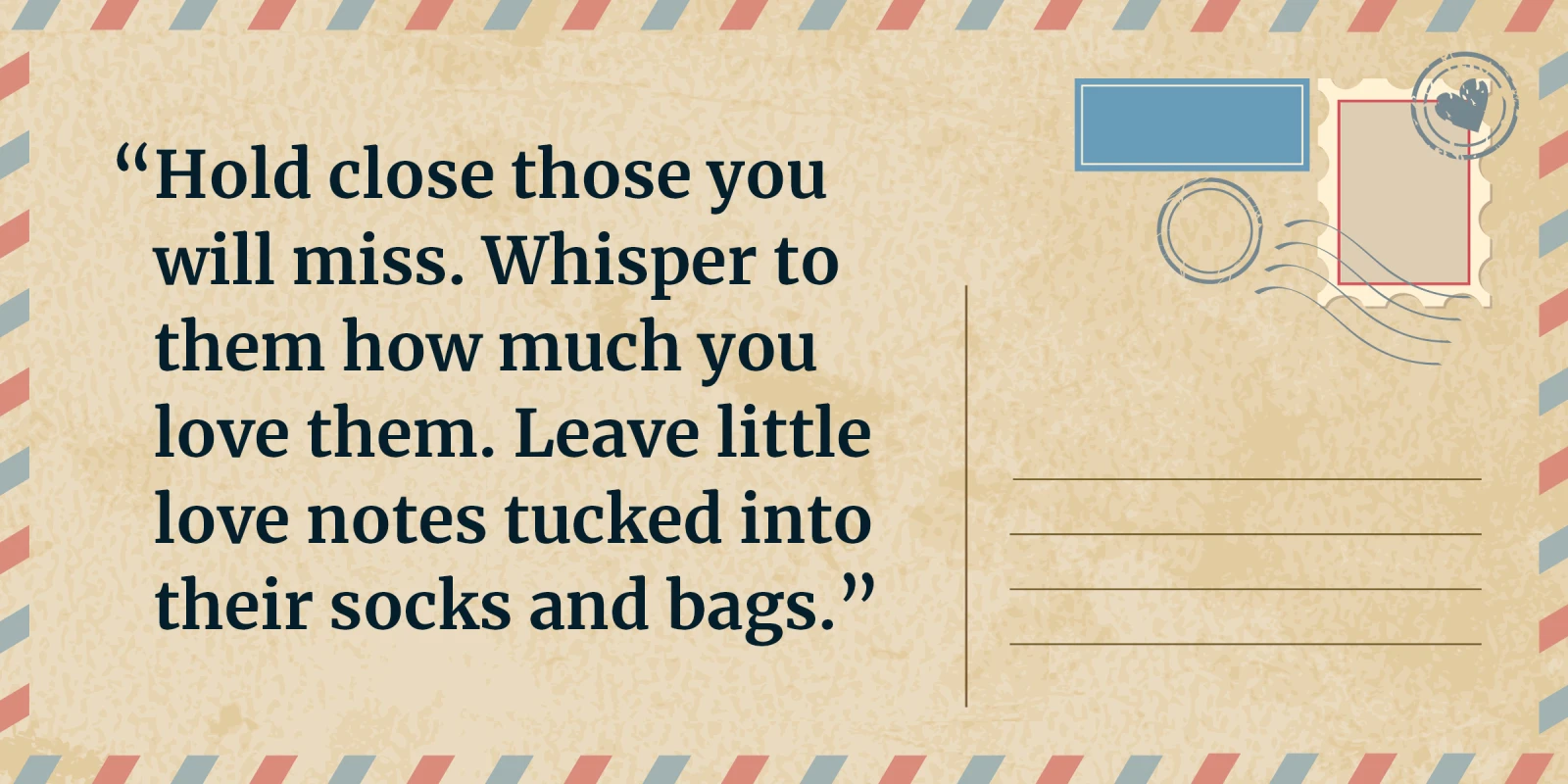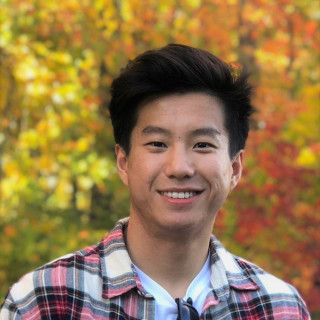This work of fiction is part of the Medical Humanities Series on Op-Med, which showcases creative work by our members. Do you have a poem, short story, creative nonfiction or visual art piece related to medicine that you’d like to share with the community? Send it to us here.
Postcards For My Death
Morning Dreams
These are the quiet moments when I start to miss someone. Most days it’s my wife, with whom I lived for 70 years. I dream of her going to bed, some nights wishing the dream would never end. On other days I miss my parents, who I said goodbye to when I was a young boy. The last memory I have of them is of a strong hug and many tears. “I love you. Be good,” I still hear my mom whispering. And then I was whisked away, alongside many other children. We were, eventually, brought to America. I never saw them again. For many years I was terrified to learn the truth, so I hid it deep in my heart.
Today, though, is a day I miss my dog. A white beagle mix with a large brown spot in the middle of her back. Smooth, soft fur that ruffled comfortably during both ways of brushing. She had large brown eyes that I spent hours looking into, trying to decipher. She died last week from lymphoma. Ironic because I have the same disease. On her last day, she could barely walk. She just lay in the backyard grass, panting. Our appointment was at 2 p.m. We had time, so I sat with her outside for at least three hours. I talked about what she was like as a puppy, the places we’d seen, and the life we lived. She was in constant pain, but the longer I talked, she started to breathe comfortably, and her paws twitched the way they did when she dreamed of chasing after rabbits.
Uncomplicated Journeys
The walk to the hospital has not changed. I tripped over the same red cobblestones I stumbled over as a medical student. The buildings have change, with their steel and glass and touchscreens. The walk has not. That’s the curious thing about journeys. They say you can’t step into the same river twice, but sometimes the river follows you.
Just ahead of me is a trainee. He’s rifling for his badge in a bruised backpack, trying to do so without looking. All the young ones do that. He finds it just before crossing the street, slinging it over his neck. And before I can ask him what year he’s in, his footsteps leave me behind. His scrubs are too long, so much so that he’s rolled the pants up at least three times over. Even then, they flop over his dusty white running shoes.
I wait for the cars to stop and wave at them. I might as well give the drivers a conversation starter. Once I’m on the other side, the walk is much easier. I could do it with my eyes closed, the number of times I’ve passed the taqueria, the museum, the administrative offices. The fryer oil in the air, followed by the whoosh of extra cold AC, all come and go as scheduled. It is like flipping through a synesthesia picture book of early adulthood.
The main entrance to the hospital itself remained unchanged: a fortress of dirty gray, speckled with pale windows that reflected the clouds overhead. It used to look massive to me; today, it is almost timid. Almost weary. I begin to feel sorry for the hospital. Hundreds of years old and unable to move. Always holding the sick and dying. A place of sorrow and hatred for some and regret for others. A position that is hard to envy. But someone’s got to have the role. A metaphor again, I chuckle to myself as I walk through the visitor’s entrance.
Waiting Again
The clinic is always brightly lit, as if light can make all things well. The wood paneling and beige carpet complement each other. Quite a few couples are sitting in the plastic and fiberboard chairs. Some have canes, others oxygen packs, but all are holding onto each other. I start to miss someone again.
As life moves by, it’s interesting how things change. Waiting itself has become an act, a moment to look forward to. As a young physician, it was the tedious in-between that I never remembered. A moment to skip past and erase from my schedule. A source of frustration and anxiety. And yet, if you were to repeat these same stories, I’d laugh and tell you how I love to wait. How it is sacred, and how the anticipation of the act itself is rewarded in a new perspective. Of the privilege we take for granted to have something to wait for, to have someone to wait on. To spend all night at the snowy train station, waiting for your wife to arrive though you know the train has been delayed four hours. To sit with a patient before going for palliative surgery, to hold their small hands in your calloused ones and tell them that everything will be alright.
It is precisely in these moments that we notice the things not that no one notices but the things that no one cares to notice. In the act itself, we are so enraptured with idealizations of perfection and completeness that our vision blacks out everything else. This is why life moves fast. And why we spend our entire life trying to slow it down.
For the Anniversary of My Death
Nostalgia is an interesting thing. We often dream of the ability to relive a memory over again, either due to pleasure or regret. If it is pleasurable, it is to experience the exact same feeling again with a sadness in knowing that may never be so. If it is regret, it is to hopelessly believe that we can change what has already been recorded. To feel the rocks holding fast against the current and our feet anchored by the coldness.
I feel a little sleepy now. The doctor tells me the medicine is working. The other chairs are empty today. I wonder where they’ve gone. And if I’ll be joining them soon. It’s probably too soon for that joke.
I doze off, and by the time I wake, the sun is setting. I’m alone in the room, with its floor-to-ceiling windows and panoramic views of the blazing red skyline. My mind starts to wander, and so does the story I’ll tell when I get home. I try to remember as much as before the nurses come in. There’s not much to look forward to for the next week. The nausea and tingling I deal with. The loneliness and hopeless romance, not so much.
You, who are reading this, won’t understand. We dream of love too. Even more so when death is close. Matters such as legacy fall into the shadows. I just want someone to hold me. To feel some type of warmth that isn’t my cranky radiator.
I jot this down in my notebook as I walk out of the hospital and wait for the train home. I used to time my walks perfectly with the arrival of the brakes that are never oiled and crowds of people that make our distances apart even more apparent. But recently, I’ve been walking at my own pace. I wait for the train to arrive. It’s a simple joy. The man with the harmonica is gone now. Music still plays. A flock of geese takes off. The gleam of orange paints skyscrapers. The wind sends a nearby man’s hat tumbling onto the bench.
Elegy After
If you are reading this, then I have died. Do not feel sorry for me. Do not even cry for me. You and I are strangers, and you and I will remain strangers. We do not cry for such things. Instead, crumple these postcards up. Read them and let them go. Don’t think too hard about them. It’s not something to bring up over dinner. Or even a quick coffee chat.
Instead, hold close those you will miss. Whisper to them how much you love them. Leave little love notes tucked into their socks and bags. Smile and revel in the breath you are taking right now. Feel the air go in and out, in and out. Sense the rhythm of your body and the beautiful harmony it forms with anything you desire. Sit and wait for this moment to pass through you.
In my last moments, I learned what meaning subsists of. And, of course, the joy in waiting for it to come.
It is a beautiful thing to realize things you spent your whole life chasing. And because of that, I will keep it secret.
Think of it as my last metaphor for you.
An Interview with the Author
What inspired “Postcards for My Death?”
My inspiration for this piece came from watching patients in the hospital, and trying to place myself in their shoes. Oftentimes, I forget my age, and sit in silent awe of my patients, especially the older ones. They have seen so much, magnitudes more than I have, and in those moments, I just want to appreciate their presence, and soak in their time. It also comes from thinking of the long path in medicine, and of trying to grasp onto memory, especially the fleeting ones we take for granted.
How long have you been writing?
I've been writing ever since high school. Since then, I've had numerous opportunities to share my work, from the White House to schools and libraries across the nation. Each experience has both been humbling and energizing, in showing me that my work and my voice matters. In medical school, I've found that writing not only serves as a conduit for self-healing, but provides a space for communal healing and connection. My stories and poems now mostly revolve around the patients I see and the experiences I live through as a medical student, and I seek to use writing as a way to continue to explore the world and bring pieces of healing and growth to those who read it.
Why did you choose fiction for this piece?
I used to exclusively write poetry. While I still write poetry, I have started to fall in love with the short story medium, as it gives me more space to fully verbalize what I intend while still allowing room for the mysterious power lyrical poetry and imagery has. I love the visual nature and rhythm of poetry but I am also drawn to the concreteness and dialogue of fiction, and so the short story seemed to be a happy blend of the two. Even with the structure of the short story, I still like to bring in elements from poetry.
How does “Postcards” relate to your medical practice?
This is a creative short story about life and death and everything in-between. My hope is that it fosters not only feelings of empathy for the patients we have the privilege of caring for, but that it inspires more clinicians to reflect on their experiences, because the positions we have are truly magical and filled with so much raw lived experience, even if they seem mundane.
David Xiang is a writer and student at Harvard Medical School. He previously served as a 2015 National Student Poet, the nation's highest honor for youth poets. His works can be found in JAMA, Palliative & Supportive Care, Lancet Psychiatry, and Journal of General Internal Medicine, among others. He writes to bring people together and to heal. He is currently a Doximity Op-Med Fellow.
Image by alien-tz / Shutterstock






